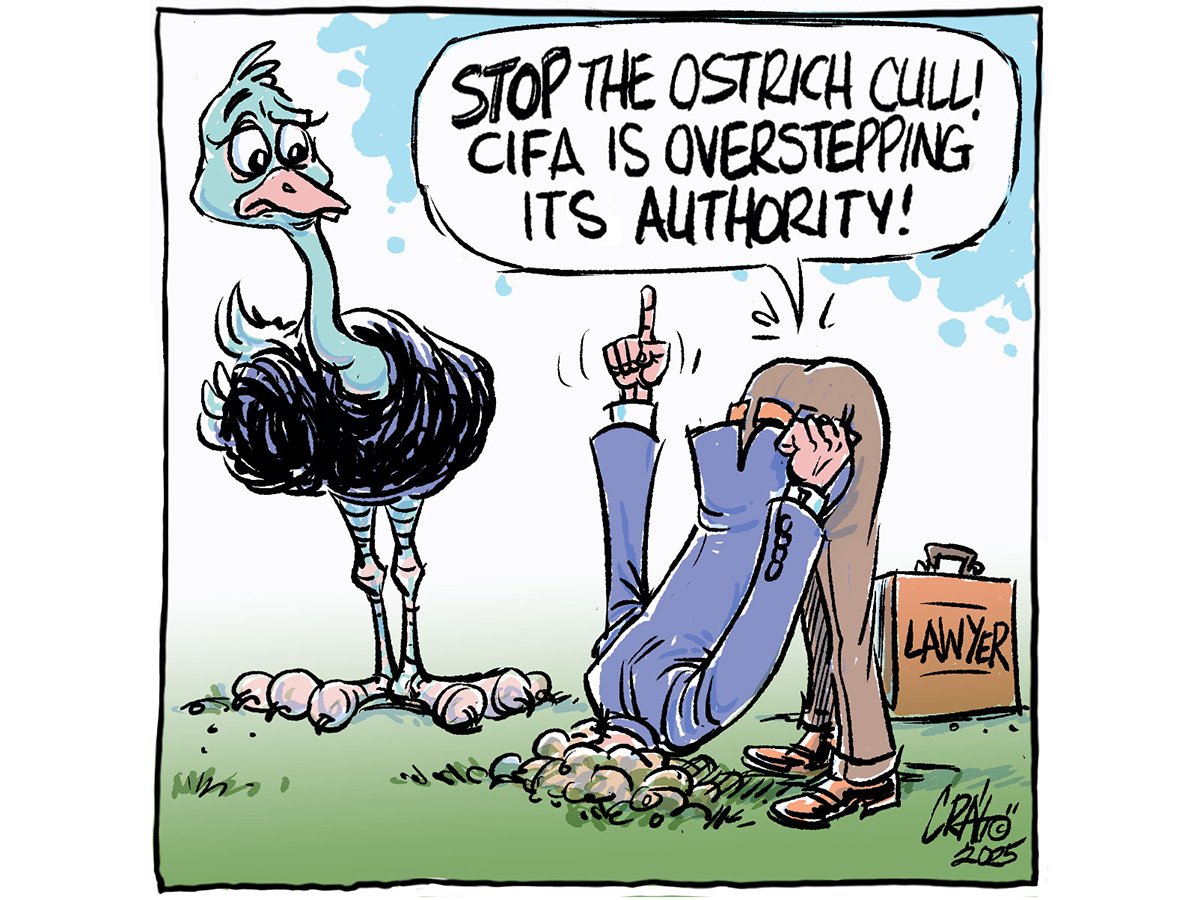For the first time in 31 budgets, the March 4 version contained no additional money for agriculture.
There was an $11 billion spending increase, but none of it was targeted specifically to the sector, save the annual payment of the Canadian Grain Commission deficit.
It is a disheartening omission that is more troubling when considering the warnings that this is the last “spending” budget before the government gets serious about tackling the $54 billion deficit.
Finance minister James Flaherty has a plan to end that deficit by the middle of the decade.
Read Also

The Canadian Food Inspection Agency’s animal health efforts require producer support
Livestock producers should be concerned by how an ostrich farm is using crowd funding to help it defy a Canadian Food Inspection Agency order to destroy more than 300 birds.
It doesn’t bode well for any new agricultural spending within the next five years.
How could this budget have assisted an industry that employs millions, directly and indirectly, and which helps feed Canada and the world? In myriad ways but here is a short list:
• greater assistance to the struggling livestock sector ;
• improvements to agricultural safety nets to make them more effective at seeing farmers and ranchers through difficult economic times;
• programs developed that would help attract more people to the field of agriculture, in all its employment diversity;
• more funding made available for agricultural research to ensure the industry remains competitive and viable.
None of that was in the budget, though that is not to say that agriculture was completely ignored.
But rather than address pressing problems, the government instead announced continued efforts to eliminate the Canadian Wheat Board’s monopoly on the marketing of wheat and export barley.
There are surely more immediate needs in the agricultural sector, as itemized above.
Addressing even those few could assist some of those who are struggling and build a foundation for the future in terms of attracting people and developing new crops and markets through research.
Regardless of where farmers stand on the issue of the wheat board, changing it or retaining it are not the great priority that this government seems to think.
However, efforts to make legislative change regarding the wheat board wouldn’t cost the government money.
Fixing the real priorities would.
This government isn’t oblivious to agriculture, despite the sector’s omission in the budget. It diverted $75 million from the AgriFlexibility fund to help packing plants deal with SRM removal and disposal costs.
It isn’t new money, but it is important acknowledgement of the problem and the money will likely do some good.
Similarly, the government recently earmarked $19 million for canola and flax research designed to help those sectors fight crop disease, improve nutritional properties of the crops and develop new crop uses.
So, despite its odd fixation on the wheat board, incremental help continues. Response to changing conditions is something the Canadian Federation of Agriculture is apparently counting on, as president Laurent Pellerin indicated in his response to the budget.
“We had hoped to see additional measures announced to help tide the struggling hog and cattle sector over until the next generation of agricultural programming can be developed and implemented, but remain optimistic the government will continue to show flexibility in working with us in addressing some of these outstanding issues in the coming months – to ensure we can continue to work towards a renewed and strengthened agricultural sector,” he said.
To paraphrase that most diplomatic of reactions: we didn’t get what we wanted and requested for agriculture in the budget but hopefully the government will respond to pressing needs at some point.
It is devoutly to be wished.
Bruce Dyck, Terry Fries, Barb Glen, D’Arce McMillan and Ken Zacharias collaborate in the writing of Western Producer editorials.














